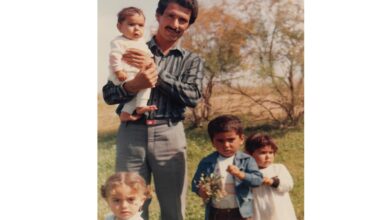Association for Defending Victims of Terrorism – HRW reported, The US government has apparently failed to provide compensation or other redress to Iraqis who suffered torture and other abuse by US forces at Abu Ghraib and other US-run prisons in Iraq two decades ago.
Iraqis tortured by US personnel still have no clear path for receiving redress or recognition from the US government though the effects of torture are a daily reality for many Iraqi survivors and their families.
In August 2022, the Pentagon released an action plan to reduce harm to civilians in US military operations, but it doesn’t include any way to receive compensation for past instances of civilian harm.
After the US invasion of Iraq in 2003, the US and its coalition allies held about 100,000 Iraqis between 2003 and 2009. Human Rights Watch and others have documented torture and other ill-treatment by US forces in Iraq. Survivors of abuse have come forward for years to give their accounts of their treatment, but received little recognition from the US government and no redress. Prohibitions against torture under US domestic law, the Geneva Conventions of 1949, and the United Nations Convention Against Torture, as well as customary international law, are absolute.
“Twenty years on, Iraqis who were tortured by US personnel still have no clear path for filing a claim or receiving any kind of redress or recognition from the US government,” said Sarah Yager, Washington director at Human Rights Watch. “US officials have indicated that they prefer to leave torture in the past, but the long-term effects of torture are still a daily reality for many Iraqis and their families.”
Between April and July 2023, Human Rights Watch interviewed Taleb al-Majli, a former detainee at Abu Ghraib prison, in addition to three people with knowledge of his detention and his condition after his release who wished to remain anonymous. Human Rights Watch also interviewed a former US judge advocate who served in Baghdad in 2003, a former member of Iraq’s High Commission for Human Rights, and representatives of three nongovernmental organizations working on torture. Human Rights Watch also reviewed media and nongovernmental reports, as well as US government documents including US Department of Defense investigations into alleged detainee abuse.
In May, Al-Majli told Human Rights Watch that US forces subjected him to torture and other ill-treatment, including physical, psychological, and sexual humiliation while detaining him at Abu Ghraib prison between November 2003 and March 2005.
He said he was one of the men in a widely circulated photo at Abu Ghraib that shows a group of naked, hooded prisoners on top of one another in a human pyramid, while two US soldiers smile behind them. “Two American soldiers, one male and one female, ordered us to strip naked,” al-Majli said. “They piled us prisoners on top of each other. I was one of them.”
Human Rights Watch wrote to the US Department of Defense on June 6, 2023, outlining al-Majli’s case, providing the research findings, and requesting information on compensation for survivors of torture in Iraq. Despite repeated follow-up requests, Human Rights Watch has not received a response.
“I didn’t know what else I could do or where else to go,” al-Majli said. Human Rights Watch was not able to find any legal pathway for al-Majli to file a claim seeking recompense.





